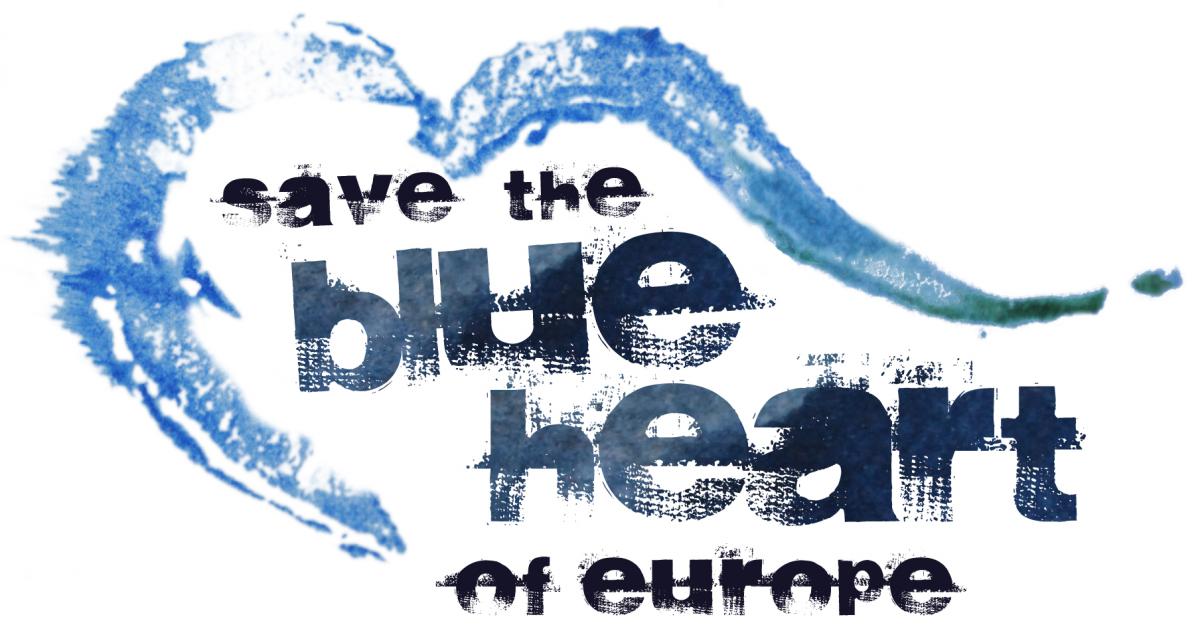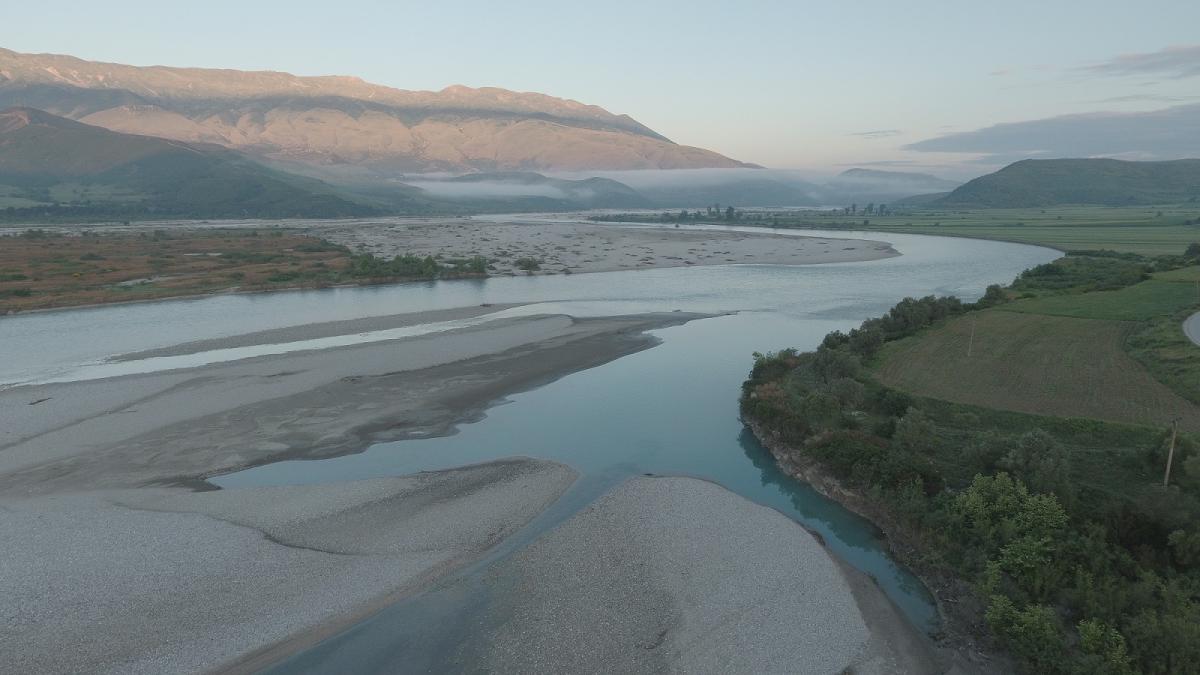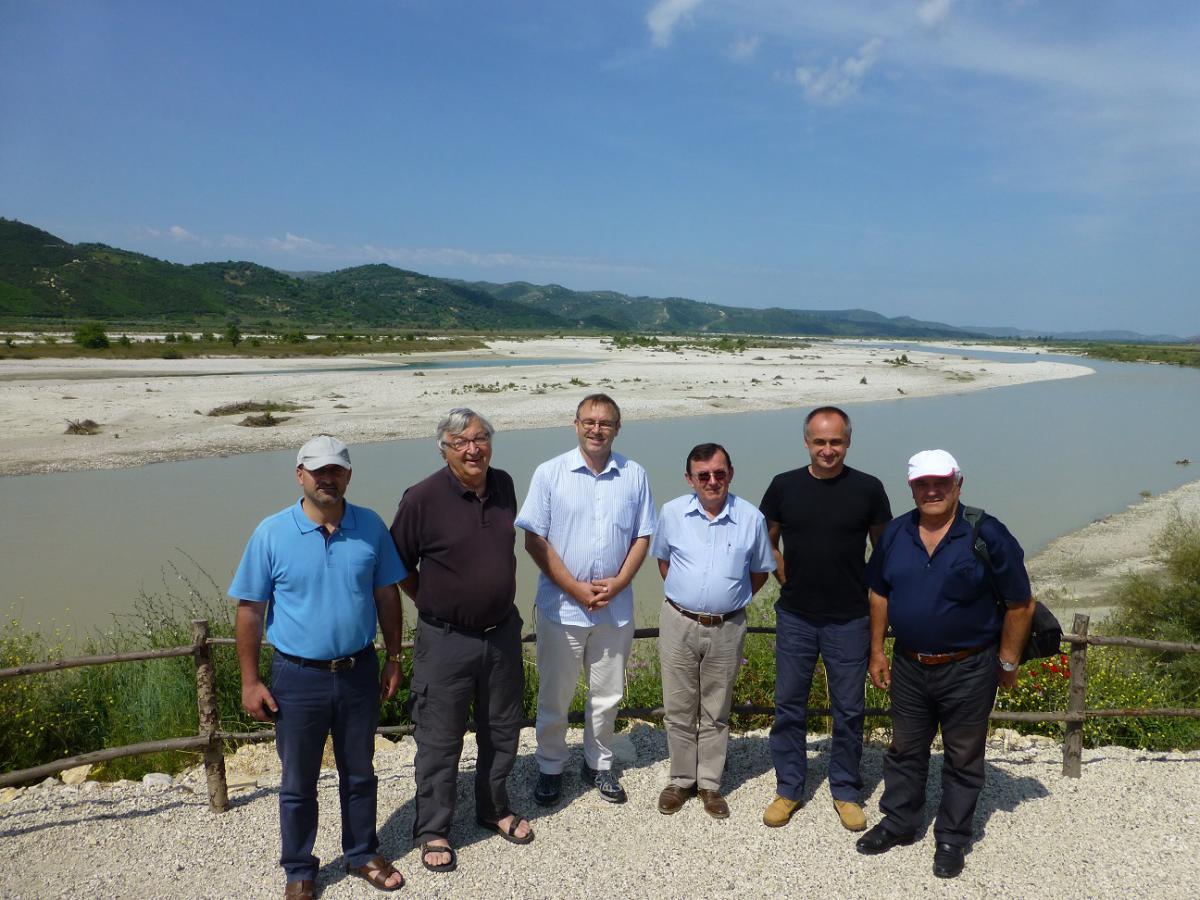 Save the Blue Heart of Europe - A campaign for the protection of Balkan Rivers
Save the Blue Heart of Europe - A campaign for the protection of Balkan Rivers
Renowned scientists confirm: Environmental assessment for Vjosa hydropower project is a farce
 Joint press release by Riverwatch, EuroNatur and EcoAlbania
Joint press release by Riverwatch, EuroNatur and EcoAlbania
++ Scientists’ analysis sent to Prime Minister Edi Rama ++
 Tirana, December 21, 2016. Shortly before Christmas, the Albanian Prime Minister Edi Rama and other government representatives got mail from renowned scientists from Austria and Germany. The experts had analysed the Environmental Impact Assessment (EIA) for the hydropower project Poçem on the Vjosa river in Albania. The EIA attests the project to be environmentally sound. According to the scientists, however, the EIA is a farce. It does not even meet minimum requirements and is thus not suitable to predict environmental impacts of the projected hydropower plant. With this critique, the scientists back the assessment of their Albanian colleagues from the University of Tirana. The Austrian NGO Riverwatch and the German EuroNatur Foundation have previously criticized the quality of the EIA and are now being vindicated by the scientists’ newest analysis.
Tirana, December 21, 2016. Shortly before Christmas, the Albanian Prime Minister Edi Rama and other government representatives got mail from renowned scientists from Austria and Germany. The experts had analysed the Environmental Impact Assessment (EIA) for the hydropower project Poçem on the Vjosa river in Albania. The EIA attests the project to be environmentally sound. According to the scientists, however, the EIA is a farce. It does not even meet minimum requirements and is thus not suitable to predict environmental impacts of the projected hydropower plant. With this critique, the scientists back the assessment of their Albanian colleagues from the University of Tirana. The Austrian NGO Riverwatch and the German EuroNatur Foundation have previously criticized the quality of the EIA and are now being vindicated by the scientists’ newest analysis.
In particular, the scientists criticize that
- flora and fauna were not surveyed whatsoever and data on rare species was not collected
- 60 percent of the EIA text was simply copy-pasted from other documents and refers in part to completely different geographical regions
- hydrological, morphological and ecological processes were not evaluated and
- potential long-term effects of the project were not discussed
 In their letter to the Albanian Prime Minister Edi Rama, the Minister for Energy Damian Gjiknuri and to the Minister for the Environment Lefter Koka, the international experts called upon the government representatives to reject the EIA and instead facilitate a proper assessment according to EU standards.
In their letter to the Albanian Prime Minister Edi Rama, the Minister for Energy Damian Gjiknuri and to the Minister for the Environment Lefter Koka, the international experts called upon the government representatives to reject the EIA and instead facilitate a proper assessment according to EU standards.
“This EIA does in no way allow for a reliable prediction in regards to the impacts on biodiversity, groundwater conditions, as well as to the actual consequences for residents. The biological impacts of a dam are dealt with in just 10 lines, without mentioning a single fish species. This pieced up document does not deserve the name of an EIA”, says Dr. Martin Pusch from the Leibniz-Institute of Freshwater Ecology and Inland Fisheries in Berlin (IGB).
According to the EIA’s authors, the hydropower project Poçem is in accordance with the highest international standards. “The positive and negative impacts of the proposed project are identified and calculated. (…) The whole project is in full compliance with the best international standards, and this increases the safety work level during the operation process reasonable scale as possible”, the EIA praises.
The scientist vehemently oppose this position: “The conclusions of the EIA have been plucked out of thin air and are not based on comprehensible data. Unfortunately, the submitted EIA does not meet international standards and represents rather a caricature of an EIA than a serious basis for decision”, so the experts’ analysis states.
“This is not about supporting or opposing the project, but rather about the fact that policies require proper and comprehensible planning as a basis for decision. The highest possible legal standards must be applied to a river of such international importance. We are always willing to support the Albanian ministries in implementing a proper EIA”, so Prof. Friedrich Schiemer from the University of Vienna.
Background information
- Environmental Impact Assessment: In general, an EIA has the purpose to evaluate short-, medium-, and long-term impacts of a project on nature and affected residents. This requires an in-situ survey: examining plant and animal populations, groundwater conditions, hydromorphological processes, or the amount of gravel and sand the Vjosa is transporting in that area. On basis of such examination, predictions about the impacts of a projected hydropower plant and ultimately an assessment about its environmental compatibility are to be made. The EU has stipulated criteria in regards to the implementation of an EIA. Albanian legislation also dictates these standards.
- The Vjosa is the last big wild river in Europe outside Russia. Entirely unobstructed, she flows through inaccessible gorges and sections with enormous gravel banks and islands on her course of almost 270 kilometers from the Pindus Mountains to the Adriatic Sea. The Albanian government under Prime Minister Edi Rama is currently about to have a Turkish company construct a hydropower project within the ecologically most valuable stretch of the Vjosa.
- The campaign “Save the Blue Heart of Europe” aims to protect the most valuable rivers in the Balkans. The campaign is coordinated by the NGOs Riverwatch and EuroNatur and carried out together with partner organisations in the Balkan countries.
Contacts
Ulrich Eichelmann – Riverwatch: ulrich.eichelmann@riverwatch.eu +43 676 6621512
Angie Rother – EuroNatur: angie.rother@euronatur.org + 49 7732 92 72-15
Besjana Guri – EcoAlbania: b.guri@ecoalbania.org + 355 692954214